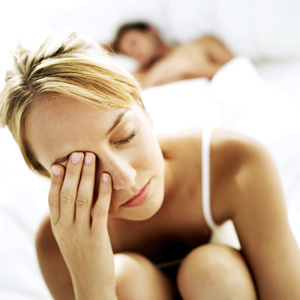Shop News
-
25/11/2025Ganoderma Benefits
-
07/02/2025Colds & Flu - treatment and prevention
-
24/01/2025Ginseng - Nature's anti-inflammatory
-
23/01/2025Curcumin Benefits
-
02/05/2024Allergies Tradicional Chinese Medicine
-
12/03/2024Food Combining and Chinese Medicine
-
23/08/2023Phytoestrogens
-
05/06/2023Ginseng Benefits
-
02/06/2023Aumento de precios de la marca Blue Poppy
-
20/07/2022Infertility and Chinese Medicine
-
10/05/2022Allergic Rhinitis
-
24/03/2022TCM Obesity and Its Causes
-
23/03/2022Cancer Prevention and Diet
-
26/01/2022Medicinal Mushrooms
-
18/12/2021Christmas Remedies
-
09/07/2021CANDIDIASIS
-
03/03/2021Chinese Herbal Medicine formula studied to improve cancer therapy
-
12/01/2021The benefits of Xiao Yao San
-
15/09/2020Coronavirus Protocol (summary)
-
01/06/2020TCM Principles for Weight Loss
-
12/02/2020Take Good Care of Your Qi
-
01/01/2020Cordyceps Sinensis Benefits
-
01/12/2019Prevention & Treatment of Colds & Flu
-
27/04/2019ANXIETY - causes and treatments
-
26/03/2019Prostatitis and Chinese Herbs
-
01/03/2019What is an Adaptogenic Herb?
-
05/02/2019New Jade Herbal Formulas
-
09/12/2018The Shen of the Heart
-
23/08/2018Hyperthyroidism and Hypothyroidism
-
05/07/2018FOCUS ON A REMEDY: WARM THE MENSES
-
04/04/2018Treating Insomnia With Chinese Herbal Medicine
-
25/03/2018Cordyceps Sinensis research
-
01/03/2018Chinese Herbal Medicine for Panic Attacks
-
07/11/2017BI SYNDROME
-
01/09/2017Chemotherapy and Anti-Oxidants
-
05/03/2017Lumbar Disc Herniation
-
31/01/2017Treatment Principles in Exterior Invasions
-
21/10/2016Healthy Aging and Oriental Medicine: Qi is the secret
-
23/09/2016Horny Goat's Weed Benefits
-
25/06/2016Ginkgo Biloba Benefits
-
23/03/2016Blood Stasis
-
23/01/2016CHRONIC FATIGUE SYNDROME
-
28/12/2015TONICS
-
24/10/2015A CASE HISTORY OF CHRONIC BRONCHITIS
-
23/09/2015Ganoderma Lucidum reduces obesity in mice
-
01/07/2015The Five Elements and Diet in Chinese Medicine
-
23/05/2015Daoist Sexual Practices
-
21/02/2015DEPRESSION
-
22/01/2015GLAUCOMA
-
20/12/2014ENDOMETRIOSIS
-
28/11/2014POLYCYSTIC OVARY SYNDROME
-
21/08/2014Ear infections and antibiotics
-
24/06/2014FOCUS ON A REMEDY: CHEMO-SUPPORT
-
21/03/2014Stomach-Yin Deficiency and Jade Spring
-
21/02/2014JOY, AN EMOTIONAL CAUSE OF DISEASE?
-
17/01/2014SEXUAL LIFE IN CHINESE MEDICINE
-
19/12/2013ON STAGNATION OF LUNG- AND HEART-QI
-
14/11/2013THREE TREASURES REMEDIES FOR PAIN
-
23/10/2013HEADACHE CASE HISTORY
-
12/07/2013Giovanni Maciocia Clinical Tip: Arouse Power
-
19/04/2013Case history - Chronic constipation
-
18/06/2012Herbs for the treatment of Anorexia
-
09/04/2012REMEDY OF THE MONTH: CLEAR YANG
-
28/04/2011Lingzhi slows progress of Alzheimer’s
-
18/10/2010European Legislation for natural products
-
19/09/2010700-year-old Chinese medicine can treat depression...
-
01/09/2009Swine Flue
Treating Insomnia With Chinese Herbal Medicine
Insomnia, or the inability to fall asleep or remain asleep, has been and continues to be treated using  CHM to the present day.
CHM to the present day.
A recent study in Evidence-based Complementary and Alternative Medicine evaluated and reviewed the use of CHM for insomnia treatment in Taiwan. The study showed that there were 16,134 subjects who visited traditional Chinese Medicine clinics for insomnia in Taiwan during the year 2002. In addition, several studies have demonstrated that CHM treatments effectively benefit sleep quality, improve sleep duration, and exhibit reduced side effects in comparison to Western medicines.
One of the most efficient formulas is the "Resolve & Stabilize", indicated for the treatment of recalcitrant insomnia which has lasted for more than three months. It can be used when other, more conventional Chinese therapies for insomnia have failed. Patients may not be able to sleep at all or only 1-2 hours per night.
Research outcomes:
In 38 patients with recalcitrant insomnia lasting for more than three months, 23 were cured, 12 improved, and only three got no effect, for a total amelioration rate of 92.1%. The shortest course of treatment was 10 days, the longest was 49 days.
The most commonly prescribed Chinese herbal formula for insomnia was Suan Zao Ren Tang. This formula consists of 5 individual herbs grouped together for the most beneficial synergistic effect. The primary herb in this formula is Ziziphus spinosa, or Suan-zao-ren (a.k.a., sour jujube seed). This herb has been shown to cause a sedative effect at higher doses and an anxiolytic effect at lower doses.
Another study found that the formula Suan Zao Ren Tang produced an increase in non-rapid eye movement sleep, and it is believed that the mechanism was by the stimulation of serotonin receptors. The other herbs in this formula include Chuan-xiong (Szechuan lovage root), Fu-ling (poria), Zhi-mu (anemarrhena rhizome), and .jpg) Gan-cao (licorice root).
Gan-cao (licorice root).
It is important to note that whereas Western medicine attempts to treat insomnia as an isolated symptom, traditional Chinese medicine examines the condition of the body as a whole system, taking into consideration signs and symptoms ranging from appetite, thirst, mood, tongue color, and the quality of the pulse to reach a diagnosis.
Suan Zao Ren adults
Suan Zao Ren pediatrics
